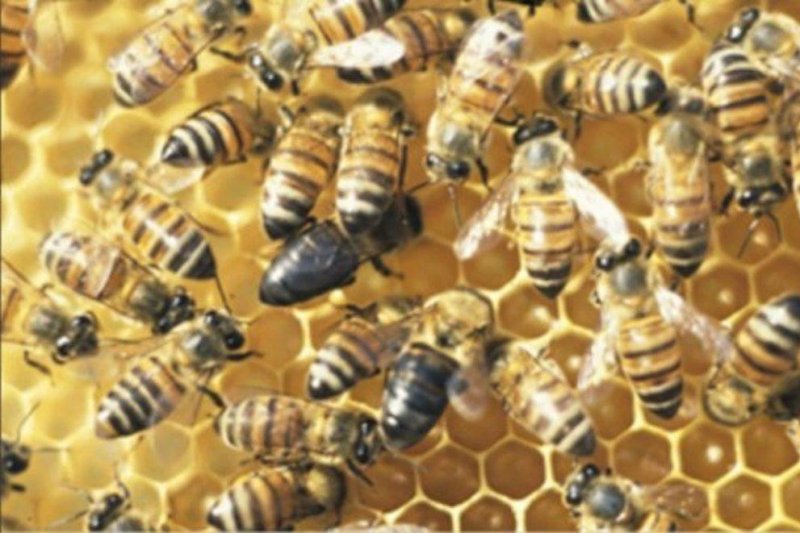Some female workers in the hives of South Africa Cape honey bees ignore the queen's orders and reproduce on their own. Photo by Mike Allsopp
Jan. 9 (UPI) -- Researchers have identified the agent of gene mutation responsible for turning typically dutiful honey bees into mutinous conquerers.
Scientists and laypeople alike have long marveled at the social structure and cohesion of bee colonies. The unique combination of hierarchy and devotion makes hives run with impressive efficiency.
But not all bee colonies are dissent-free. Among South African Cape honey bees, Apis mellifera capensis, a genetic phenomenon known as thelytoky syndrome causes some female workers to disobey the queen and reproduce on their own.
When scientists, in an effort to save the threatened species, tried to relocate several Cape honey bees to new habitat northeast of their preferred home, rebellious females began disrupting the hives of a neighboring honey bee subspecies, A. m. scutellata.
Females with thelytoky syndrome invaded foreign hives, reproduced a loyal army of workers, stole the hive's honey and dethroned the queen.
Though destructive, thelytoky syndrome makes sense as a strategy for maintaining order and continuity if and when the true queen is lost. But researchers couldn't figure out why the syndrome is only evident among South Africa Cape honey bees.
New genomic analysis, however, has finally offered clues. Scientists were able to identify the root genetic cause of thelytoky syndrome. They described the breakthrough in the journal Molecular Biology and Evolution.
"Uncovering the genetic architecture underlying thelytoky is a big step towards understanding this mode of reproduction, not only in the Cape honeybee, but also in other insect species in general," Eckart Stolle, researcher at the Martin Luther University of Halle-Wittenberg's Institute of Biology, said in a news release. "After having worked on the topic for so many years with so much efforts by our colleagues and us to add pieces to the puzzle and also with the one or other dead end, it is a huge accomplishment for us to have come to this point."
Researchers located the gene by comparing the genomes of diploid and haploid Cape honeybees, those that produce female and male offspring, respectively. Scientists named the LOC409096 gene Thelytoky. The gene's expression triggers a complex chain reaction of protein production, altering the bee's behavior.
Scientists also determined that the gene is a dominant trait, passed down directly from one generation to the next. But interestingly, the gene requires its typical altruistic counterpart to operate effectively.
"This dominant mutation expresses the phenotype, thelytoky, when one copy of the gene is the mutated variant, and the other copy is the one variant typical for the Cape honey bee," said researcher Denise Aumer.
Two genes of the mutated variety is a lethal combination, researchers determined. Researchers think the genetic quirk explains why thelytoky syndrome hasn't spread throughout Cape honey bee workers and hasn't evolved among other species.















